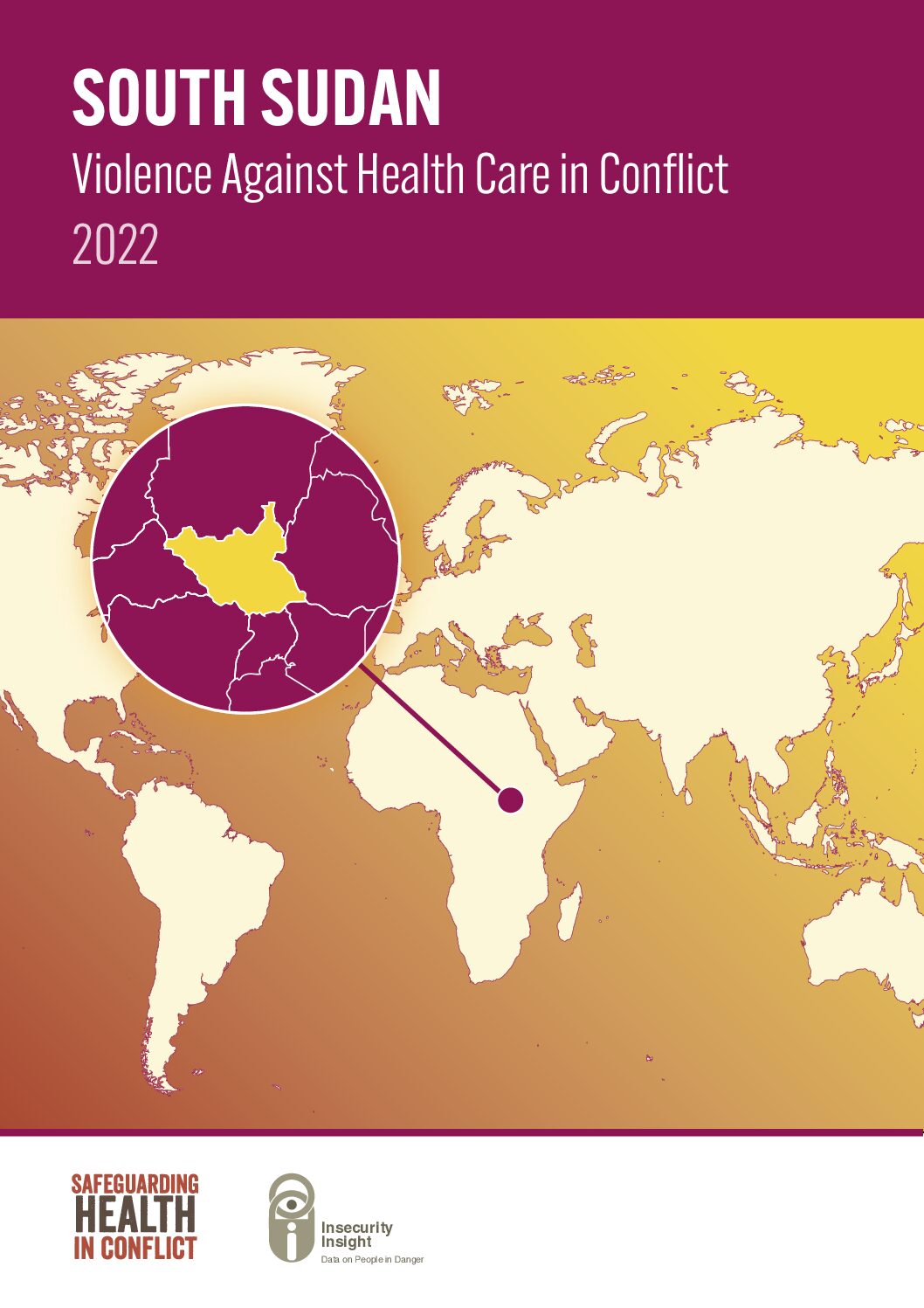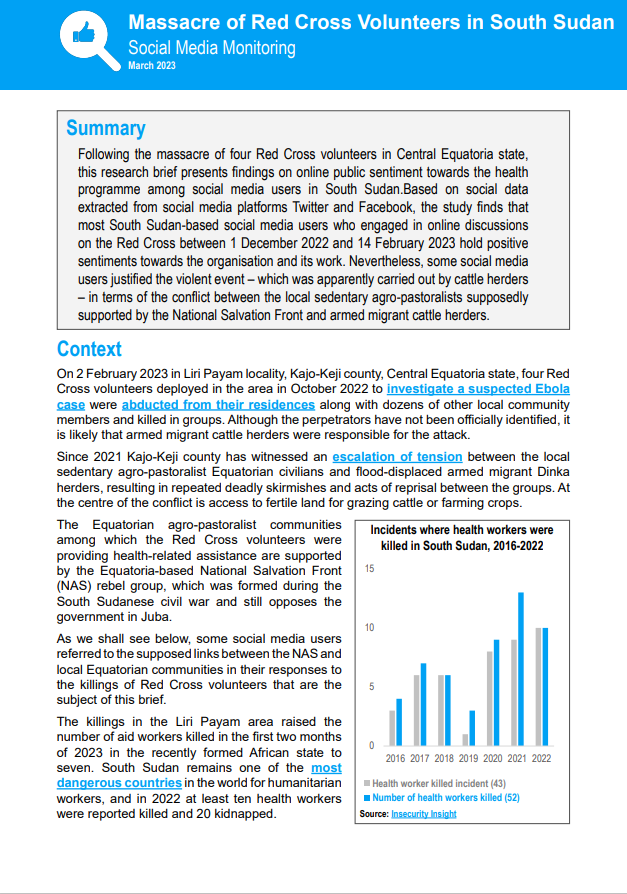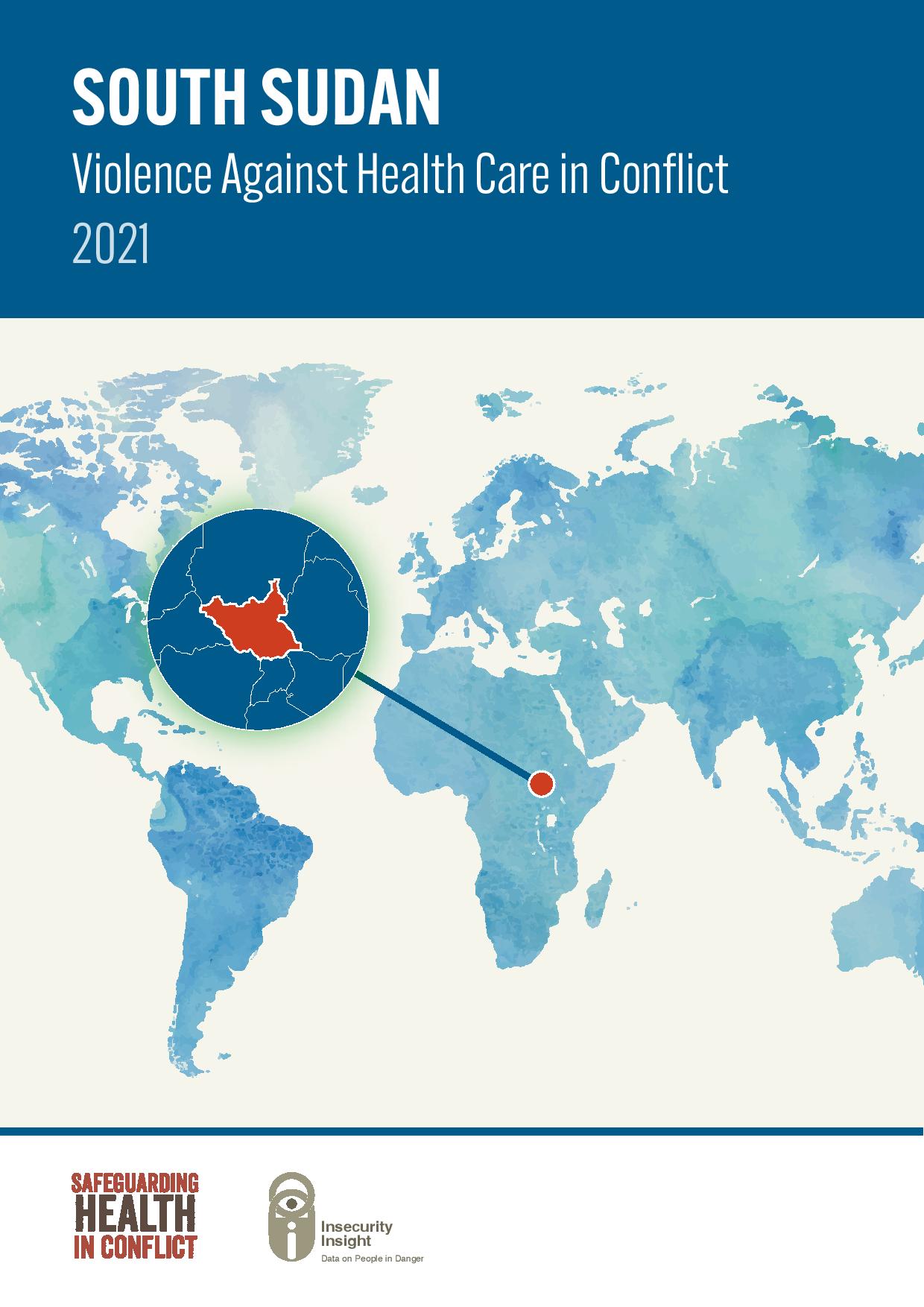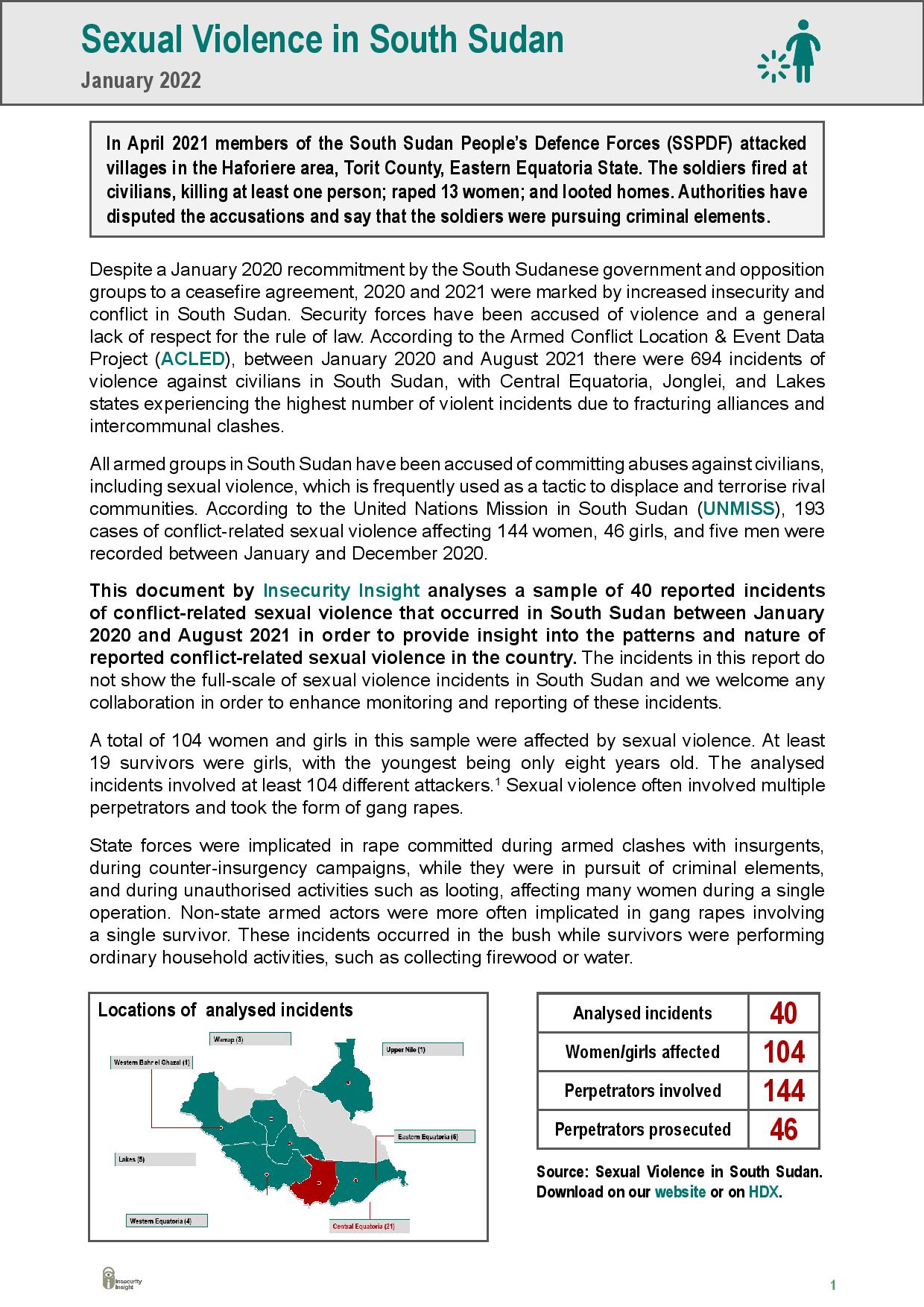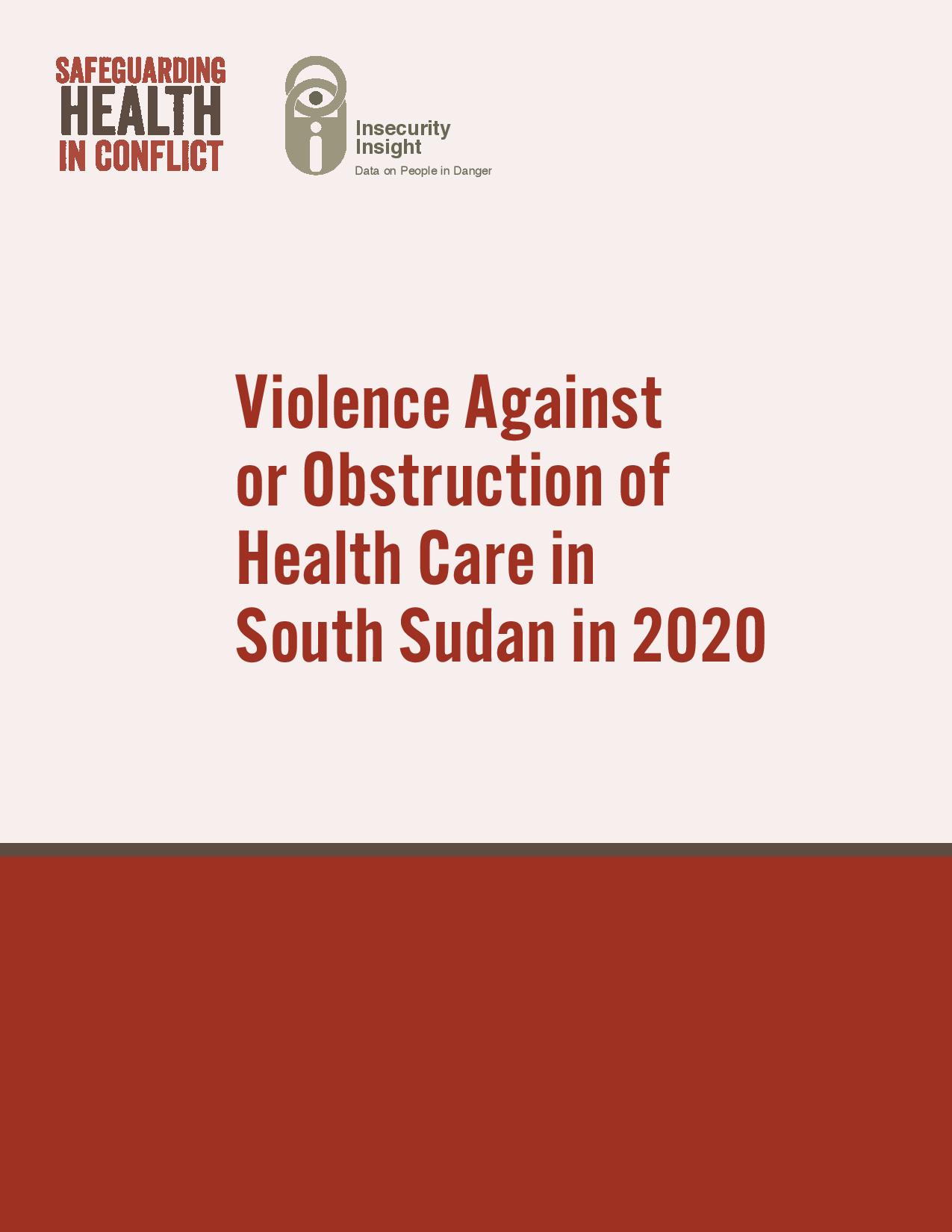- Home
- About us
- Press Releases
- Projects
- SIIM
- Security Incident Information Management (SIIM) (EN)
- Security Incident Information Management (SIIM) FR
- Security Incident Information Management (SIIM) (ES)
- Security Incident Information Management (SIIM) AR
- SIIM in NGO Security Collaboration
- Toolkit: Evidence that Protects Health Care
- Support for Advocacy
- Mobile Guides and Podcasts
- Mobile guides on security
- Research partnership
- Concept development
- Information
- Country Pages
South Sudan
Violent conflict, intercommunal violence, forced displacement and food insecurity have created a situation of severe humanitarian need in South Sudan.
Off duty aid worker killed in Ruweng Administrative Area
05 March 2024: In Ruweng Administrative Area, an off-duty 43-year-old male humanitarian worker was killed and a woman injured in an attack by cattle raiders. Source: Eye Radio. Return to South Sudan home page. more
Previous stories:
Reports
Health Care
Insecurity Insight documents attacks on health care in South Sudan from open sources and partner contributions. Our data is accessible on the Humanitarian Data Exchange here.
The South Sudan chapter of the 2022 Safeguarding Health Care in Conflict Coalition report – Ignoring Red Lines: Violence Against Health Care in Conflict – analyses 24 incidents of violence against or obstruction of access to health care in the country in 2022. Among the incidents, 20 health workers were kidnapped and ten were killed. The incidents were spread across nine of South Sudan’s ten states and administrative areas but were most frequent in Central Equatoria, Jonglei and Unity states, a change from 2021 when most incidents were reported in Western Equatoria. Further details are available in the full chapter which is accessible here.
Our Global Interactive Map on Threats and Violence against Health Care provides access to continuously updated information on violence against health care in conflict and that related to responses to COVID-19.
Sexual Violence
A wide variety of armed groups have been accused of committing abuses against civilians in South Sudan, including sexual violence, which is frequently used as a tactic to displace and terrorise rival communities. Insecurity Insight documents such violence. Our data is accessible on the Humanitarian Data Exchange here.
Insecurity Insight’s latest report on sexual violence in South Sudan analyses 40 reported incidents of conflict-related sexual violence between January 2020 and August 2021. It revealed that women and girls were often attacked by members of state forces during clashes with armed groups and counter-insurgency operations, highlighting the extent to which sexual violence may form part of a strategy to fight insurgents by attacking their families or to strengthen group cohesion among perpetrators. The full report is accessible here.
